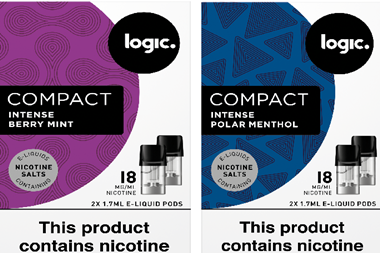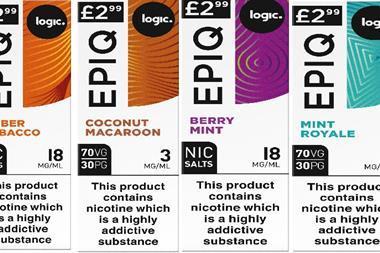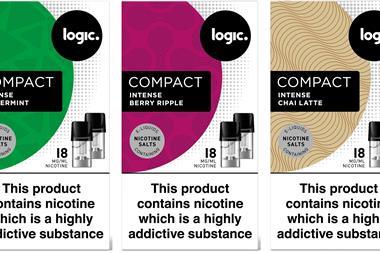Regular use of e-cigarettes (e-cigs) does not have any negative health impact on smokers, a new 24-month clinical trial has revealed.
The peer-reviewed clinical trial, conducted by Fontem Ventures, owner of the Blu e-cig brand, examined 209 volunteer smokers who used a typical closed-system e-cig for 24 months.
Researchers monitored for adverse events, as well as lung function, electrocardiogram results, and exposure to nicotine and tobacco constituents.
During the trial, no serious safety concerns were recorded among the participants and no clinically relevant findings were observed in all other medically-defined safety criteria.
From month two, nicotine withdrawal symptoms decreased. Smoking desire and conventional cigarette consumption also steadily decreased over time in all subjects.
E-cig use was associated with reduced exposure to cigarette smoke constituents, whereas urinary nicotine levels remained close to baseline. Body weight did not increase in con subjects switching to e-cigs.
In conclusion, the aerosol of the e-cig at study was well tolerated and not associated with any clinically relevant health concerns after usage for up to 24 months, the review concluded.
Tanvir Walele, director of scientific affairs at Fontem Ventures, said: “This study shows that after two years of continual e-cig use, there were no signs of serious health complications in smokers.
“Clinical data over a two-year period gives us a much clearer picture about longer term vaping, and the potential implications for the health of smokers, so they can make an informed decision.
“This research suggests we need e-cig regulation that is not modelled on tobacco product regulation, but encourages innovation and compliance with robust product quality, manufacturing and safety standards,” she added.
A recently updated Cochrane Review reached a similar conclusion to this study: that e-cigs with nicotine can help smokers to reduce or replace smoking with no increased health risks associated with short- to mid-term (up to two years) use.
“Governments and policy-makers should ensure that regulatory frameworks reflect this emerging scientific consensus, as more long-term research demonstrates the safety profile of e-cigs,” Walele added.




























No comments yet